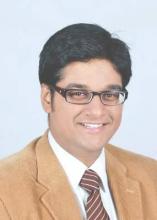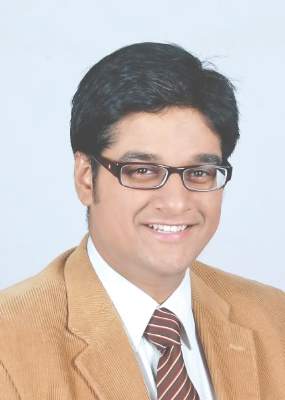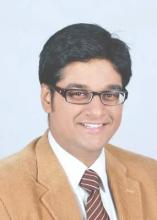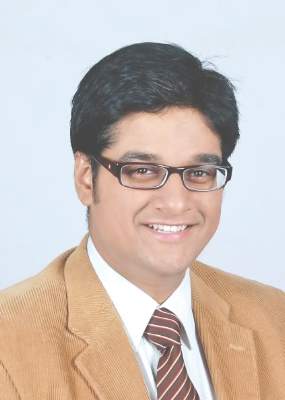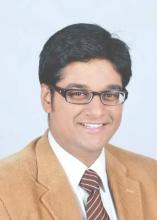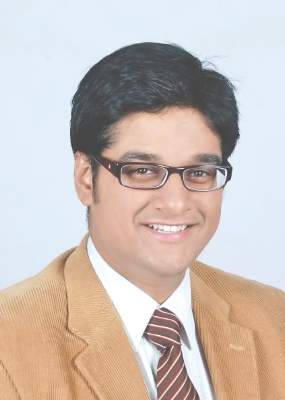User login
Where is he now?
A couple made a baby boy. Into him they poured their hopes and dreams. But life is strange with its twists and turns, and things rarely go as planned.
The baby had a rough start. His brain was severely injured. The parents were told the chances of meaningful recovery were close to nothing. With heavy hearts but their son’s best interest in mind, they made the hardest decision of their lives – to provide for his comfort and nothing more. His life supports withdrawn, he was handed to them.
He did not die. Instead, he breathed. With that singular, definitive act, he proved his presence to them. They took him home, unsure what would come next. They did what anyone faced with such terrifying circumstances would have done – they fell in love with their baby. Their goals changed, but their love did not. Tinted by love, his staring spells became looks of cognizance, his reflexes became volitional motions. Think what you may, but do not judge them.
Unexpectedly, he has reached the age of 15 months. Through it all, the mother and father have been the perfect parents of a complex patient. But now he refuses to play the role of stable complex child. Instead, he is steadily worsening. It is easy for me to see this as I take ICU calls every fourth night. Not so for them. I don’t know what it feels like to build a dream and watch it crumble like sand, then to have to learn to carry on with what is left. I cannot imagine living a moment of their lives. Yet there they sit, next to him, waiting for rounds with smiling faces.
We are stuck. We wonder what’s in his best interest – to intervene with an invasive procedure that may allow him to go home or to withdraw interventions and provide him with comfort.
In my eyes, the real question is – where does he live? His parents believe that he is in the body lying on the bed. I can see why they feel this way – if he isn’t there, then what has any of this meant? Has he never been there? Did he leave sometime between defying death and creeping back toward it? These are frightening thoughts to face, indeed. And so, thoroughly entrenched, they must press on lest it be felt that they gave up on him.
I don’t know where he lives. Somewhere else? Heaven perhaps. In his parent’s memories for certain, and in my thoughts as well. In this limp body on the bed? I’m not so sure. But as he stares into his mother’s eyes, and jerks in response to her voice, I begin to doubt myself. How can I help them make this decision?
Perhaps this is the final lesson that residency will teach me.
No. I suspect I still won’t have an answer for the next parents I meet, once his story has played out. Only more questions. …
Dr. Behere was a pediatric resident at the Children’s Hospital at Dartmouth-Hitchcock, Lebanon, N.H., when he wrote this article. He is a first-year fellow in pediatric cardiology at the Nemours Cardiac Center at the Nemours/Alfred I. duPont Hospital for Children, Wilmington, Del. E-mail him at [email protected].
A couple made a baby boy. Into him they poured their hopes and dreams. But life is strange with its twists and turns, and things rarely go as planned.
The baby had a rough start. His brain was severely injured. The parents were told the chances of meaningful recovery were close to nothing. With heavy hearts but their son’s best interest in mind, they made the hardest decision of their lives – to provide for his comfort and nothing more. His life supports withdrawn, he was handed to them.
He did not die. Instead, he breathed. With that singular, definitive act, he proved his presence to them. They took him home, unsure what would come next. They did what anyone faced with such terrifying circumstances would have done – they fell in love with their baby. Their goals changed, but their love did not. Tinted by love, his staring spells became looks of cognizance, his reflexes became volitional motions. Think what you may, but do not judge them.
Unexpectedly, he has reached the age of 15 months. Through it all, the mother and father have been the perfect parents of a complex patient. But now he refuses to play the role of stable complex child. Instead, he is steadily worsening. It is easy for me to see this as I take ICU calls every fourth night. Not so for them. I don’t know what it feels like to build a dream and watch it crumble like sand, then to have to learn to carry on with what is left. I cannot imagine living a moment of their lives. Yet there they sit, next to him, waiting for rounds with smiling faces.
We are stuck. We wonder what’s in his best interest – to intervene with an invasive procedure that may allow him to go home or to withdraw interventions and provide him with comfort.
In my eyes, the real question is – where does he live? His parents believe that he is in the body lying on the bed. I can see why they feel this way – if he isn’t there, then what has any of this meant? Has he never been there? Did he leave sometime between defying death and creeping back toward it? These are frightening thoughts to face, indeed. And so, thoroughly entrenched, they must press on lest it be felt that they gave up on him.
I don’t know where he lives. Somewhere else? Heaven perhaps. In his parent’s memories for certain, and in my thoughts as well. In this limp body on the bed? I’m not so sure. But as he stares into his mother’s eyes, and jerks in response to her voice, I begin to doubt myself. How can I help them make this decision?
Perhaps this is the final lesson that residency will teach me.
No. I suspect I still won’t have an answer for the next parents I meet, once his story has played out. Only more questions. …
Dr. Behere was a pediatric resident at the Children’s Hospital at Dartmouth-Hitchcock, Lebanon, N.H., when he wrote this article. He is a first-year fellow in pediatric cardiology at the Nemours Cardiac Center at the Nemours/Alfred I. duPont Hospital for Children, Wilmington, Del. E-mail him at [email protected].
A couple made a baby boy. Into him they poured their hopes and dreams. But life is strange with its twists and turns, and things rarely go as planned.
The baby had a rough start. His brain was severely injured. The parents were told the chances of meaningful recovery were close to nothing. With heavy hearts but their son’s best interest in mind, they made the hardest decision of their lives – to provide for his comfort and nothing more. His life supports withdrawn, he was handed to them.
He did not die. Instead, he breathed. With that singular, definitive act, he proved his presence to them. They took him home, unsure what would come next. They did what anyone faced with such terrifying circumstances would have done – they fell in love with their baby. Their goals changed, but their love did not. Tinted by love, his staring spells became looks of cognizance, his reflexes became volitional motions. Think what you may, but do not judge them.
Unexpectedly, he has reached the age of 15 months. Through it all, the mother and father have been the perfect parents of a complex patient. But now he refuses to play the role of stable complex child. Instead, he is steadily worsening. It is easy for me to see this as I take ICU calls every fourth night. Not so for them. I don’t know what it feels like to build a dream and watch it crumble like sand, then to have to learn to carry on with what is left. I cannot imagine living a moment of their lives. Yet there they sit, next to him, waiting for rounds with smiling faces.
We are stuck. We wonder what’s in his best interest – to intervene with an invasive procedure that may allow him to go home or to withdraw interventions and provide him with comfort.
In my eyes, the real question is – where does he live? His parents believe that he is in the body lying on the bed. I can see why they feel this way – if he isn’t there, then what has any of this meant? Has he never been there? Did he leave sometime between defying death and creeping back toward it? These are frightening thoughts to face, indeed. And so, thoroughly entrenched, they must press on lest it be felt that they gave up on him.
I don’t know where he lives. Somewhere else? Heaven perhaps. In his parent’s memories for certain, and in my thoughts as well. In this limp body on the bed? I’m not so sure. But as he stares into his mother’s eyes, and jerks in response to her voice, I begin to doubt myself. How can I help them make this decision?
Perhaps this is the final lesson that residency will teach me.
No. I suspect I still won’t have an answer for the next parents I meet, once his story has played out. Only more questions. …
Dr. Behere was a pediatric resident at the Children’s Hospital at Dartmouth-Hitchcock, Lebanon, N.H., when he wrote this article. He is a first-year fellow in pediatric cardiology at the Nemours Cardiac Center at the Nemours/Alfred I. duPont Hospital for Children, Wilmington, Del. E-mail him at [email protected].
Wabi-sabi
Recently, I was amazed to see a small walk-in booth with a webcam, a monitor, and a curtain, offering telemedicine consults from the comfort of a service station on I-95. Pandora’s Box, I thought.
The robots are coming! Take a dip into popular science fiction if you don’t believe me. From Asimov to “Star Wars,” there are innumerable examples of aseptic, polite automatons providing prompt, unbiased, unfatigued medical care. People have always been enamored by such visions of the future. And booths like this are the gateway to that vision. As excited as I am about this tremendous advance and the potential it holds, I can’t help but feel that when this new frontier of medicine reaches fruition, we will have lost something, too.
Medical education is exacting, exciting, and at times, excruciating. But above all, the privileged experience of learning about the inner workings of the body is an innately human process. Looking back, it’s not syndromes, numbers, or dosages I remember, but the colorful spectrum of characters I encountered along the way. We’ve all met them – the funny, the quirky, the warm, the gentle, the stern, the phlegmatic, the intermittently explosive, the socially inept, the obliviously savant, and occasionally, the frankly sociopathic. They are the ones who teach us how the science of medicine connects with the art of healing. Our bedside manners and critical thinking processes are molded by the intercourse between the different types of personalities we encounter in our education.
Until the first Medibot 3000 is rolled out, doctors will be flawed, biased, and stressed humans. We deal with the same roller coaster journey through life as do our patients, but we accept a responsibility to be the caretakers of their health. Perhaps we do so not in spite of our faults, but all the better because of them. The human experience provides us with empathy. It ingrains within us unique insights and perspectives. It allows us to read between the lines of a patient’s statements. It pushes us to go beyond protocols when we need to, and it helps us create the trust that is the heart of the doctor-patient relationship.
Kintsugi is the Japanese art of fixing cracks along broken pottery with rare metals, thus creating unique and beautiful patterns which accentuate the character of the pot. It is part of a philosophy called wabi-sabi, which is all about embracing imperfection. I think they’re on to something there.
Patients are not vignettes. There is no peer-reviewed algorithm for being a good doctor. Not to say that these things are not important. They are crucial tools in our endeavor to improve our medical skills and knowledge – the bedrock upon which a career in medicine must be founded. But I hope that in our quest to improve outcomes, to remove suffering, and move toward the beckoning future, we still will have a place in medicine for human characteristics that define the act of healing, and for the philosophy of wabi-sabi. Bring the robots on, I say.
Dr. Behere was a pediatric resident at the Children’s Hospital at Dartmouth, Lebanon, New Hampshire, when he wrote this article. He is currently a first-year fellow in pediatric cardiology at the Nemours Cardiac Center at the Nemours/Alfred I. duPont Hospital for Children, Wilmington, Del. E-mail him at [email protected].
Recently, I was amazed to see a small walk-in booth with a webcam, a monitor, and a curtain, offering telemedicine consults from the comfort of a service station on I-95. Pandora’s Box, I thought.
The robots are coming! Take a dip into popular science fiction if you don’t believe me. From Asimov to “Star Wars,” there are innumerable examples of aseptic, polite automatons providing prompt, unbiased, unfatigued medical care. People have always been enamored by such visions of the future. And booths like this are the gateway to that vision. As excited as I am about this tremendous advance and the potential it holds, I can’t help but feel that when this new frontier of medicine reaches fruition, we will have lost something, too.
Medical education is exacting, exciting, and at times, excruciating. But above all, the privileged experience of learning about the inner workings of the body is an innately human process. Looking back, it’s not syndromes, numbers, or dosages I remember, but the colorful spectrum of characters I encountered along the way. We’ve all met them – the funny, the quirky, the warm, the gentle, the stern, the phlegmatic, the intermittently explosive, the socially inept, the obliviously savant, and occasionally, the frankly sociopathic. They are the ones who teach us how the science of medicine connects with the art of healing. Our bedside manners and critical thinking processes are molded by the intercourse between the different types of personalities we encounter in our education.
Until the first Medibot 3000 is rolled out, doctors will be flawed, biased, and stressed humans. We deal with the same roller coaster journey through life as do our patients, but we accept a responsibility to be the caretakers of their health. Perhaps we do so not in spite of our faults, but all the better because of them. The human experience provides us with empathy. It ingrains within us unique insights and perspectives. It allows us to read between the lines of a patient’s statements. It pushes us to go beyond protocols when we need to, and it helps us create the trust that is the heart of the doctor-patient relationship.
Kintsugi is the Japanese art of fixing cracks along broken pottery with rare metals, thus creating unique and beautiful patterns which accentuate the character of the pot. It is part of a philosophy called wabi-sabi, which is all about embracing imperfection. I think they’re on to something there.
Patients are not vignettes. There is no peer-reviewed algorithm for being a good doctor. Not to say that these things are not important. They are crucial tools in our endeavor to improve our medical skills and knowledge – the bedrock upon which a career in medicine must be founded. But I hope that in our quest to improve outcomes, to remove suffering, and move toward the beckoning future, we still will have a place in medicine for human characteristics that define the act of healing, and for the philosophy of wabi-sabi. Bring the robots on, I say.
Dr. Behere was a pediatric resident at the Children’s Hospital at Dartmouth, Lebanon, New Hampshire, when he wrote this article. He is currently a first-year fellow in pediatric cardiology at the Nemours Cardiac Center at the Nemours/Alfred I. duPont Hospital for Children, Wilmington, Del. E-mail him at [email protected].
Recently, I was amazed to see a small walk-in booth with a webcam, a monitor, and a curtain, offering telemedicine consults from the comfort of a service station on I-95. Pandora’s Box, I thought.
The robots are coming! Take a dip into popular science fiction if you don’t believe me. From Asimov to “Star Wars,” there are innumerable examples of aseptic, polite automatons providing prompt, unbiased, unfatigued medical care. People have always been enamored by such visions of the future. And booths like this are the gateway to that vision. As excited as I am about this tremendous advance and the potential it holds, I can’t help but feel that when this new frontier of medicine reaches fruition, we will have lost something, too.
Medical education is exacting, exciting, and at times, excruciating. But above all, the privileged experience of learning about the inner workings of the body is an innately human process. Looking back, it’s not syndromes, numbers, or dosages I remember, but the colorful spectrum of characters I encountered along the way. We’ve all met them – the funny, the quirky, the warm, the gentle, the stern, the phlegmatic, the intermittently explosive, the socially inept, the obliviously savant, and occasionally, the frankly sociopathic. They are the ones who teach us how the science of medicine connects with the art of healing. Our bedside manners and critical thinking processes are molded by the intercourse between the different types of personalities we encounter in our education.
Until the first Medibot 3000 is rolled out, doctors will be flawed, biased, and stressed humans. We deal with the same roller coaster journey through life as do our patients, but we accept a responsibility to be the caretakers of their health. Perhaps we do so not in spite of our faults, but all the better because of them. The human experience provides us with empathy. It ingrains within us unique insights and perspectives. It allows us to read between the lines of a patient’s statements. It pushes us to go beyond protocols when we need to, and it helps us create the trust that is the heart of the doctor-patient relationship.
Kintsugi is the Japanese art of fixing cracks along broken pottery with rare metals, thus creating unique and beautiful patterns which accentuate the character of the pot. It is part of a philosophy called wabi-sabi, which is all about embracing imperfection. I think they’re on to something there.
Patients are not vignettes. There is no peer-reviewed algorithm for being a good doctor. Not to say that these things are not important. They are crucial tools in our endeavor to improve our medical skills and knowledge – the bedrock upon which a career in medicine must be founded. But I hope that in our quest to improve outcomes, to remove suffering, and move toward the beckoning future, we still will have a place in medicine for human characteristics that define the act of healing, and for the philosophy of wabi-sabi. Bring the robots on, I say.
Dr. Behere was a pediatric resident at the Children’s Hospital at Dartmouth, Lebanon, New Hampshire, when he wrote this article. He is currently a first-year fellow in pediatric cardiology at the Nemours Cardiac Center at the Nemours/Alfred I. duPont Hospital for Children, Wilmington, Del. E-mail him at [email protected].
The outlander’s tale
“Alien Physician” – thus am I ordained by the document that allows me to train in America. I am the International Medical Graduate. This is my story.
I came from poverty and hardship. In other cases, I came from wealth and privilege. Regardless, I clawed my way over staggering numbers of competitors to earn my shot at a medical education. Back home, I was top of my class, fresh out of medical school. In other cases, I was a respected practitioner with a wealth of experience. Now I am a blank slate.
I am here because I heard of a place where questions were encouraged and boundaries pushed. Or I am here because I learned of the American dream. They told me I would be judged for my merit here and nothing else. I have escaped persecution, war, nepotism, or perhaps just a bogged-down system to get here.
Although I have taken the same tests as you, my resume comes with an asterisk. I have had to prove myself by rising to a standard higher than that expected of my peers. Much of my time and peace of mind are consumed jumping through bureaucratic hoops in order to continue my stay. For every one of me you see, there is at least one more who was forced to give up on his or her dream midway.
Know this, however – I appreciate working in a system where the team is greater than the individual, where no job is menial, where the ability to make choices about your health is yours alone, to be shared should you need to.
Know that I am good company, although my jokes sometimes fall flat in the space between our two cultures. Learning new things about your country and its people makes me feel young again.
Know that I have a keen appreciation of how important cultural nuance is to the doctor-patient relationship, even if I come across as ignorant. I have gained this understanding not by reading about it in a book, but by living it.
Know that nothing is more important to me than the health of my patients, and that my being a foreigner does not mean your child will receive anything less than my very best.
Most importantly, know that I feel blessed to be here. While my journey is still uphill, I have no regrets. If I were not made of hard stuff, I would not be here. Although I may grumble, I shall endeavor to accept my lot with grace and humility in the knowledge that I have earned the right to practice the subject that I love and the cognizance that not everyone would open their arms to outsiders the way you have. It has meant the world to me. Working with you has opened my eyes to things I did not see before and has inspired me to be a better doctor. I hope in some small way my presence here affords you that same inspiration.
Dr. Behere was a pediatric resident at the Children’s Hospital at Dartmouth, Lebanon, N.H. when he wrote this article. He is currently a first-year fellow in pediatric cardiology at the Nemours Cardiac Center at the Nemours/Alfred I. duPont Hospital for Children, Wilmington, Del.
“Alien Physician” – thus am I ordained by the document that allows me to train in America. I am the International Medical Graduate. This is my story.
I came from poverty and hardship. In other cases, I came from wealth and privilege. Regardless, I clawed my way over staggering numbers of competitors to earn my shot at a medical education. Back home, I was top of my class, fresh out of medical school. In other cases, I was a respected practitioner with a wealth of experience. Now I am a blank slate.
I am here because I heard of a place where questions were encouraged and boundaries pushed. Or I am here because I learned of the American dream. They told me I would be judged for my merit here and nothing else. I have escaped persecution, war, nepotism, or perhaps just a bogged-down system to get here.
Although I have taken the same tests as you, my resume comes with an asterisk. I have had to prove myself by rising to a standard higher than that expected of my peers. Much of my time and peace of mind are consumed jumping through bureaucratic hoops in order to continue my stay. For every one of me you see, there is at least one more who was forced to give up on his or her dream midway.
Know this, however – I appreciate working in a system where the team is greater than the individual, where no job is menial, where the ability to make choices about your health is yours alone, to be shared should you need to.
Know that I am good company, although my jokes sometimes fall flat in the space between our two cultures. Learning new things about your country and its people makes me feel young again.
Know that I have a keen appreciation of how important cultural nuance is to the doctor-patient relationship, even if I come across as ignorant. I have gained this understanding not by reading about it in a book, but by living it.
Know that nothing is more important to me than the health of my patients, and that my being a foreigner does not mean your child will receive anything less than my very best.
Most importantly, know that I feel blessed to be here. While my journey is still uphill, I have no regrets. If I were not made of hard stuff, I would not be here. Although I may grumble, I shall endeavor to accept my lot with grace and humility in the knowledge that I have earned the right to practice the subject that I love and the cognizance that not everyone would open their arms to outsiders the way you have. It has meant the world to me. Working with you has opened my eyes to things I did not see before and has inspired me to be a better doctor. I hope in some small way my presence here affords you that same inspiration.
Dr. Behere was a pediatric resident at the Children’s Hospital at Dartmouth, Lebanon, N.H. when he wrote this article. He is currently a first-year fellow in pediatric cardiology at the Nemours Cardiac Center at the Nemours/Alfred I. duPont Hospital for Children, Wilmington, Del.
“Alien Physician” – thus am I ordained by the document that allows me to train in America. I am the International Medical Graduate. This is my story.
I came from poverty and hardship. In other cases, I came from wealth and privilege. Regardless, I clawed my way over staggering numbers of competitors to earn my shot at a medical education. Back home, I was top of my class, fresh out of medical school. In other cases, I was a respected practitioner with a wealth of experience. Now I am a blank slate.
I am here because I heard of a place where questions were encouraged and boundaries pushed. Or I am here because I learned of the American dream. They told me I would be judged for my merit here and nothing else. I have escaped persecution, war, nepotism, or perhaps just a bogged-down system to get here.
Although I have taken the same tests as you, my resume comes with an asterisk. I have had to prove myself by rising to a standard higher than that expected of my peers. Much of my time and peace of mind are consumed jumping through bureaucratic hoops in order to continue my stay. For every one of me you see, there is at least one more who was forced to give up on his or her dream midway.
Know this, however – I appreciate working in a system where the team is greater than the individual, where no job is menial, where the ability to make choices about your health is yours alone, to be shared should you need to.
Know that I am good company, although my jokes sometimes fall flat in the space between our two cultures. Learning new things about your country and its people makes me feel young again.
Know that I have a keen appreciation of how important cultural nuance is to the doctor-patient relationship, even if I come across as ignorant. I have gained this understanding not by reading about it in a book, but by living it.
Know that nothing is more important to me than the health of my patients, and that my being a foreigner does not mean your child will receive anything less than my very best.
Most importantly, know that I feel blessed to be here. While my journey is still uphill, I have no regrets. If I were not made of hard stuff, I would not be here. Although I may grumble, I shall endeavor to accept my lot with grace and humility in the knowledge that I have earned the right to practice the subject that I love and the cognizance that not everyone would open their arms to outsiders the way you have. It has meant the world to me. Working with you has opened my eyes to things I did not see before and has inspired me to be a better doctor. I hope in some small way my presence here affords you that same inspiration.
Dr. Behere was a pediatric resident at the Children’s Hospital at Dartmouth, Lebanon, N.H. when he wrote this article. He is currently a first-year fellow in pediatric cardiology at the Nemours Cardiac Center at the Nemours/Alfred I. duPont Hospital for Children, Wilmington, Del.
